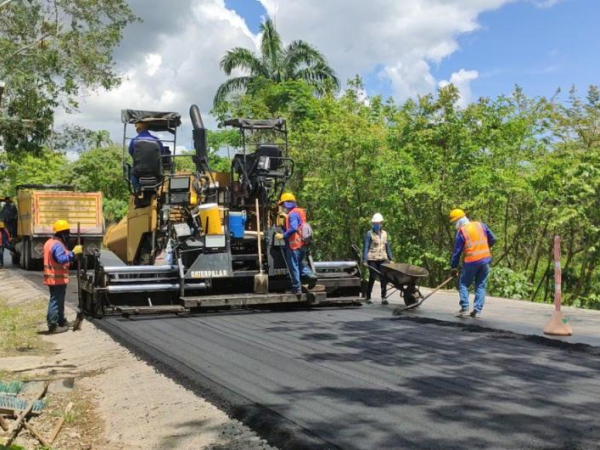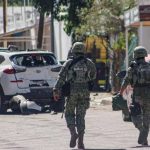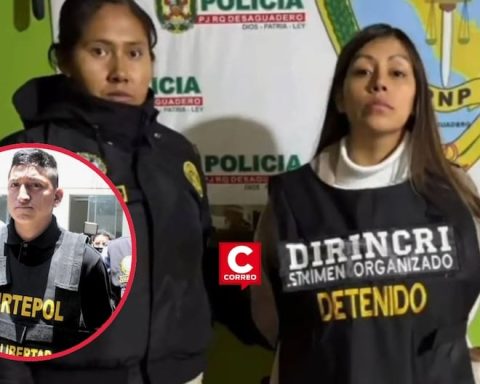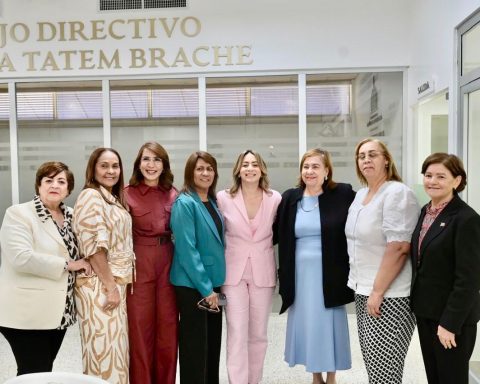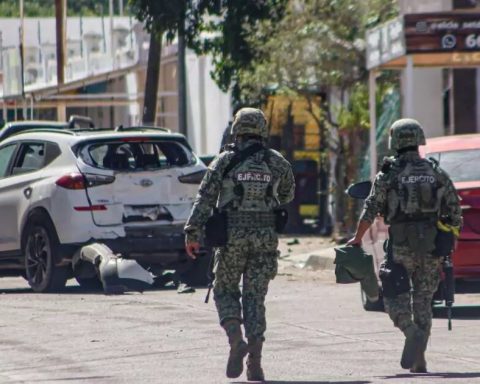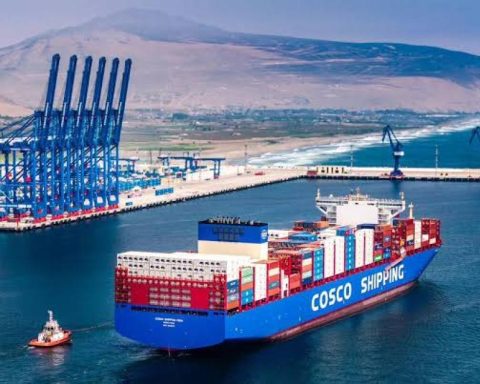The gaps in the General Budget of the Nation have had the different directors and heads of state entities running for several weeks, given that it is already a fact that the scissors will be passed to the spending accounts for 2025 and the objective is to achieve that this adjustment impacts as little as possible on the plans that each one has towards the future and ensure the fulfillment of its objectives.
This is the case of the Works for Taxes program, which closed in 2024 with its future in doubt, since it was not known if they were going to maintain the quota of resources they had been managing or it was going to be reduced, thus cutting growth. observed since its creation more than eight years ago and that today they have reached one billion pesos.
More news: Who are the economists who join the Board of Directors of the Banco de la República?
Although between 2018 and 2021, this initiative did not have a major variation in its quota of $250,000 million to work with, in recent years it has had an increase in budget allocations, first to $500,000 million in 2022, then to $800,000 million in 2023 and this year moves with a margin of maneuver of $1 billion; in what has been considered by this Government as one of its most important social commitments.
At the end of November, Portafolio learned that this amount was at risk of changing due to the cash crunches that the Nation is facing and the dependence that next year’s spending projections had on the financing law, which finally fell and took away $12 billion in spending space.
Thousands of kilometers of tertiary roads can be rebuilt in the country with the works-for-taxes mechanism.
Jaime Moreno/CEET
He was saved from the cut
To find out how the program is currently and how much it affected you the fact that there is no money, Portafolio spoke with Raúl Delgado, director of the National Territory Agency, the entity in charge of the process. According to this official, the country has good news on this front, since the room for maneuver was not only maintained but grew.
“The Confis, in the session of December 27 of last year, which was made official yesterday, approved the quota proposed by the ART for a value of $1.1 billion pesos, which means an increase of $100,000 million with respect to to the previous year’s quota, equivalent to an increase of 10%,” he initially stated.
Also read: These are the changes that Ecopetrol’s senior management will have
In the letter confirming resources, sent by the General Budget Directorate of the Ministry of Finance, it is observed that of the one trillion one hundred thousand pesos that were allocated for the strategy, $900,000 million will be through the fiduciary option and $200,000 million through agreements applicable during this term.
In simple terms, with the first, companies are given the alternative of redirecting a part of their taxes to a trust that manages the resources and contracts the execution of the project, in order to guarantee that the money is used exclusively for the approved project.

Works for taxes
Works for taxes
With the second alternative, works can be financed with own resources and, upon completion, you receive a Territorial Renewal Title (TRT) from the Ministry of Finance, which can be used to pay taxes or be marketed, under the parameters established by the regulations that regulate this program.
“The Government has come and is in dialogue with businessmen and with the territorial authorities to try to ensure that the resources, the projects that are financed through tax works, correspond to the priorities of territorial equity and social inclusion, which has been a flag of this administration,” said Raúl Delgado.
According to the Territory Renewal Agency, in 2024, the sector with the highest allocation of resources financed through works for taxes is education, with 53 projects that totaled close to $280,000 million pesos.
Other news: The challenges in the care of orphan diseases in Colombia
This is followed by the transportation sector, with 18 projects that exceed $200,000 million pesos, and the energy sector, with 21 projects for more than $180,000 million. In order of allocation, after education, are the ICBF, with more than $80,000 million, and the housing, city and territory sector, with nearly $40,000 million.
Future challenges
Emphasizing that the fact that the allocations were maintained, Despite the cash squeeze that the country faces, the director of the Territorial Renewal Agency, Raúl Delgado, highlighted that there are several challenges ahead, given that the country’s needs are many and generating development in the municipalities and departments is a task that gives no respite to the rulers.
“The path is never completely clear; There are several important challenges. The first is to ensure that projects are presented that meet all the requirements for the total value of the assigned quota. That is, achieve, if possible, 100% utilization of the quota. This implies that, at the end of the year, projects have been approved for the money available,” he said.
Due to this, he indicated that it is essential that the sectors in charge of technically approving the projects, such as the National Planning Department, the ART and the National Government, in general, work hand in hand. with territorial entities and companies, to make this development path attractive.

Works for Taxes will connect more than 1,000 families to electricity
iStock
“The second challenge is to direct these investments towards the most pressing priorities, not because they are government priorities, but because they seek to overcome the greatest gaps in the territories, such as the lack of access to drinking water, education and health,” he added.
A third challenge, as stated, is to promote greater equity territorial in the distribution of these investments, noting that there has been a tendency to concentrate them in regions with greater business strength, to the detriment of those that, despite having greater needs, do not have a robust business fabric and, therefore, do not benefit from this mechanism.
“The procedures related to this mechanism must be streamlined and simplified, to facilitate its implementation and make the project approval and execution process more efficient,” concluded Raúl Delgado.
Works for taxes is a mechanism that allows companies with gross income greater than 33,610 Tax Value Units (UVT) to allocate up to 50% of their income tax to territorial impact projects. in 170 PDET municipalities, 344 ZOMAC and Amazonian Departments, through two modalities.
